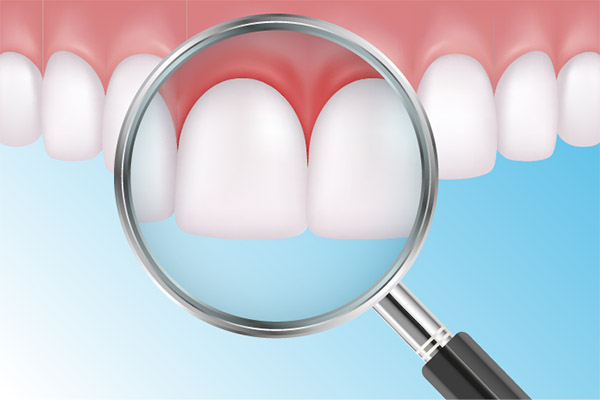 Many patients feel anxious when their periodontist recommends scaling and root planing, but these procedures are actually minimally invasive and safe. Read on to learn more about this procedure.
Many patients feel anxious when their periodontist recommends scaling and root planing, but these procedures are actually minimally invasive and safe. Read on to learn more about this procedure.
Scaling and root planing as explained by a periodontist
Periodontists offer scaling and root planing treatments for patients that have a more severe form of gum disease. The treatments involve removing plaque and tartar accumulation below the gum line to stop and possibly reverse gum disease and its associated symptoms.
What is scaling and root planing from a periodontist?
Scaling and root planing, which is also referred to as deep dental cleaning, involves cleaning below the gum line to treat gum disease. Specifically, periodontists recommend scaling and root planing to treat a more advanced form of gum disease known as periodontitis. The goal of treatment is to remove plaque and tartar that are contributing to gum disease in an effort to start healing the gums and prevent further damage.
The benefits of scaling and root planing
Scaling and root planing are designed to stop and possibly reverse the symptoms of periodontitis. This can help patients keep their teeth healthier long-term and avoid early tooth loss due to bone loss in the jaw, deep gum pockets, or enamel erosion. It can also improve the appearance of the gums as well as relieve discomforting symptoms such as bleeding gums, gum swelling and tenderness, and the tooth’s crown being excessively exposed.
Signs that indicate a need for scaling and root planing
As mentioned, scaling and root planing treats periodontitis. The most notable symptoms of periodontitis are gum pockets that measure four millimeters or more, swollen gums, gum discoloration, tender gums, and gum bleeding (especially when brushing). If these symptoms develop, then it is important to visit a periodontist to determine if a scaling and root planing (or another form of gum disease treatment) are necessary.
How a periodontist performs scaling and root planing
The scaling process begins with the removal of plaque and tartar build-up on the surface of teeth, along the gum line, and beneath the gum line on each quadrant. The second and last part is to smooth each tooth’s root (the root planing phase). The procedure can be performed in a single dental visit in many instances.
The recovery process for scaling and root planing
There is generally no notable recovery time for scaling and root planing, although there may be some gum soreness and minor swelling for a few hours after treatment. Adult patients are typically able to drive themselves home after the scaling and root planing procedure.
Do you need gum disease treatment?
Our periodontist can conduct a periodontal examination, assess your symptoms, and put together a treatment plan to help you improve your gum health. To learn more or to schedule a visit for gum disease treatment and prevention, give us a call today.
Request an appointment or call Brighton Periodontal & Implant Dental Group at 818-703-7733 for an appointment in our Woodland Hills office.
Recent Posts
People who are seeking healthy gums but are dealing with challenges with gingivitis can see an expert periodontist, a dental professional who has studied the structures that support the teeth. These include the gums, the jawbone itself, and the ligaments that help hold the teeth in place.Periodontists are trained dentists who focus their attention on…
Periodontics focuses on gum health. Keeping your gums healthy is the main goal of every treatment. Detecting any problem early leads to early treatment. You can also do your part in caring for your gums. Here are some tips from dental professionals who work in periodontics on how to have healthier gums.Bad bacteria in the…
When we go to the dentist or periodontist, one of the last things that we expect to hear is that we need gum recession treatment. However, gum recession happens to many people for many reasons. When it does happen, it is important to get it treated properly as soon as possible to avoid further damage.…


